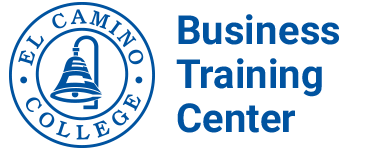An accomplished project manager (PM) is a force of nature, a wizard of efficiency, and a driver of change whose hand is always steady on the wheel. Yet the PM is often the unsung, uncelebrated hero whose talents and accomplishments are the driving engine of organizational success. After all, what the PM does is merely make sure that all things go according to plan. The varied critical business undertakings that can be assigned to the PM include: product launches, technology implementation, or the construction of a new building. The success or failure of such projects depends on how well the PM defines the project scope, assesses risk, manages budgets, procures and assigns resources, manages and motivates team members, and monitors progress.

Henry Rogers
To learn more about this critical role and what makes a good project manager, we turn to Henry Rogers, a manufacturing industry expert, instructor and Lean Six Sigma Master Black Belt.
Henry’s impressive education includes:
- A bachelor’s degree in English from the University of Notre Dame
- A master’s degree in industrial technology from Illinois State University
- An MBA from California Polytechnic University, Pomona, with an emphasis in finance
Besides his formal academic training, Henry has attended seminars on topics such as Statistical Process, Control ISO 9000, Six Sigma and Total Quality Management-related topics. He has developed and implemented training related to an enterprise resource planning (ERP) system at a 4,000-person manufacturing plant. He has also developed and delivered programs in SPC, project management, Six Sigma, Lean Six Sigma, technical writing, algebra, statistics, verbal presentations and trigonometry.
Since 2016, Henry has been teaching project management through the Business Training Center at El Camino College. He delivers customized employee training to the Center’s manufacturing and aerospace clients.
Q: What is the project manager’s role?
Henry Rogers: The overview of the role of project manager is very much like a coach or a conductor. This is because typically there are a number of people working on the project. The PM has to get everyone in sync to ensure that the project is on time, on budget and within scope. Their responsibility is to get everybody marching in the same direction during the course of the project life cycle, which consists of the following phases:
- Initiating
- Planning
- Executing
- Monitoring and controlling
- Closing
When the PM’s work runs smoothly, costs are reduced, efficiencies are maximized and organizational change is realized.
Q: What are the attributes of a successful project manager?
Rogers: A successful PM must be nimble, responsive and have excellent soft skills. In today’s business environment, speed is of the essence. To remain competitive, the response to market opportunities must happen quickly. Products have to come to market faster. In that fast-paced environment, the PM must be an excellent communicator and team player, and an effective leader of the project, which is critical because change is constant. The project management process is the vehicle that makes change happen.
Q: How has the project manager’s methodology changed?
Rogers: Over the last 10 years or so we’ve seen the emergence of alternative or hybrid project management methodologies like Agile and Scrum. These new methodologies emphasize incremental improvement and provide increased flexibility. The use of these methodologies is a departure from past practices where an organization typically used a single framework for all projects.
Q: How has this period of global supply chain disruption impacted business and how the project manager works?
Rogers: Due to the pandemic and the war in Ukraine, companies are reassessing the risks of operating manufacturing plants overseas. Because there is more risk of supply chain disruption in the systems now, many companies are moving production back to the U.S. I was recently at a company that makes couplings for high-pressure hoses that are used in food processing, among other things. They decided to bring production back to the U.S. because it was just too difficult during the pandemic to get things from their suppliers in China.
The problem is that when you move production offshore, you lose the knowledge base that goes with that aspect of the business. When you move production back, you have to resurrect that knowledge base. You have to go about setting up a manufacturing process that hasn’t been active here for maybe 10 years or longer. Moving forward, I think companies will look differently at how they value and protect their manufacturing knowledge base.
For the project manager, working in this disruptive supply chain environment is challenging. It requires the use of methodologies like Agile that provide a set of fast and flexible processes that account for change.
Q: What is your approach to teaching project management?
Rogers: My classes are never cookie-cutter. We typically divide the class into teams, and each group works on a real project that has been identified by the company. This provides a natural contextualization of the curriculum to the trainee’s specific work environment. I act as their coach as they work on their assigned projects.
There is a local manufacturing company here for which I’ve been teaching one or two project management sessions a year since 2016. Initially, I spent a lot of time with them discussing their most pressing needs related to the training. In this way, we designed the class together and identified the projects their employees would work on. In each session, there are typically three to five students on a team. And they are expected by their managers to produce measurable results by the end of the six-week-long session, during which classes take place one day a week for four hours.
###
For more information about the customized training programs provided by the El Camino College Business Training Center, please contact:
Eldon R. Davidson
Director, Center for Customized Training
El Camino College – Business Training Center
13430 Hawthorne Blvd.
Hawthorne, CA 90250
edavidson@elcamino.edu
About the Business Training Center
As one of the largest community college–based economic development programs in the state, it is the mission of the El Camino College Business Training Center (BTC) to help businesses remain successful, viable, prosperous and able to develop a competitive edge in today’s global economy. With a proven track record of improving the bottom line for every kind of business and industry, large or small, the BTC specializes in the areas of manufacturing, international trade and small business. Areas of specialized training include basic workplace skills, business skills, computer skills, continuous improvement and safety training.

